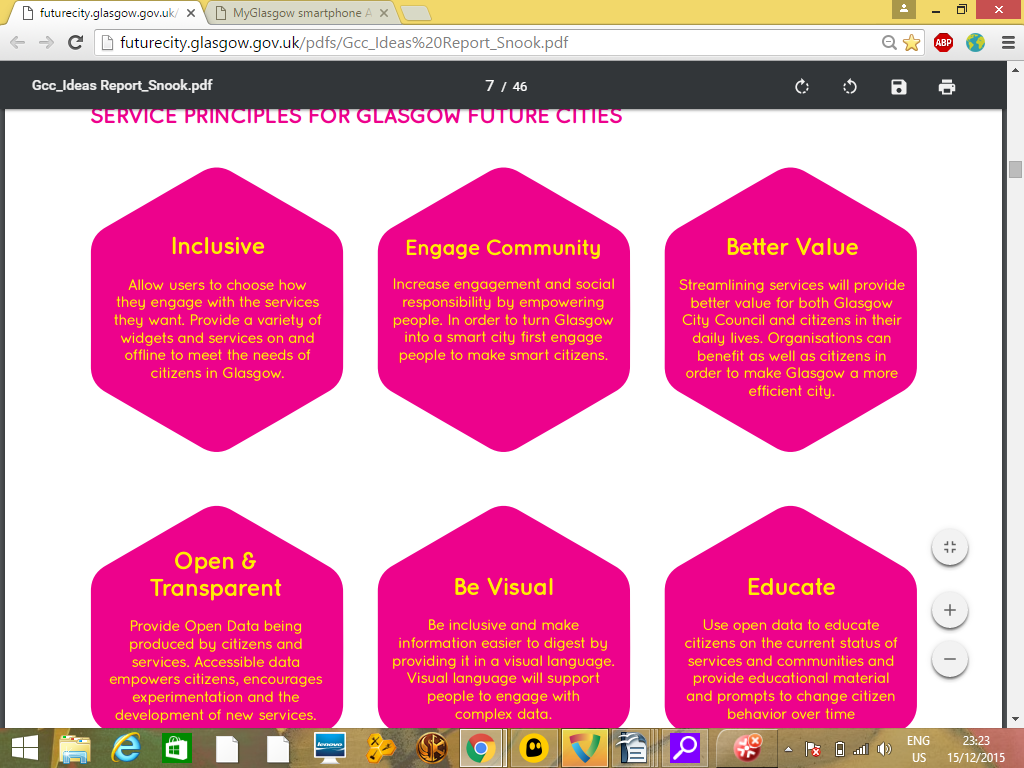
Uploaded on 2016-05-02 by KristiyanPeev
The space should be always of open to change with the change in peoples needs and desires. (http://www.pps.org/reference/11principles/). In the era of the internet and smart technology and its peer to peer open participatory nature (Berners-Lee did state the internet is basically a device to connect people to people), has been increasingly leveraged for the solving of different livability issues in modern towns and cities . (http://www.theguardian.com/cities/2015/jun/15/urban-common-radical-community-gardens). In the UK one prominent example of a Future City is Glasgow. The government is working with the social innivation agency Snook. Snook are ambitiously challenging the way governments and companies do business, re-designing the everyday products and services that make up our daily lives by rethinking them from a user-centric perspective.(http://futurecity.glasgow.gov.uk/pdfs/Gcc_Ideas%20Report_Snook.pdf) Their projects include the OPEN Glasgow OPEN Glasgow is encouraging citizens to explore and rediscover their city through the vast amounts of information it generates every day. It’s a gateway that opens up a wide range of datasets relating to Glasgow, making them quickly and easily accessible. It’s a freely adaptable resource designed to assist anyone curious about how the city really works – and inspire ways to improve it. One way in which citizen input has been used is through the road repairs process, the design of new streets and household waste management. In terms of road repairs, citizens can log the location of pot holes, non-functioning street lamps, damaged foot paths etc... into the MyGlasgow app from where the council can effectively and cheaply respond. ![Open Cities Glasgow][1] ![Open Cities Glasgow 2][2] ![A Young Man at His Window][3] [1]: https://edxuploads.s3.amazonaws.com/1462224091851297.png [2]: https://edxuploads.s3.amazonaws.com/14622241181755531.png [3]: https://edxuploads.s3.amazonaws.com/14622248742731213.jpg